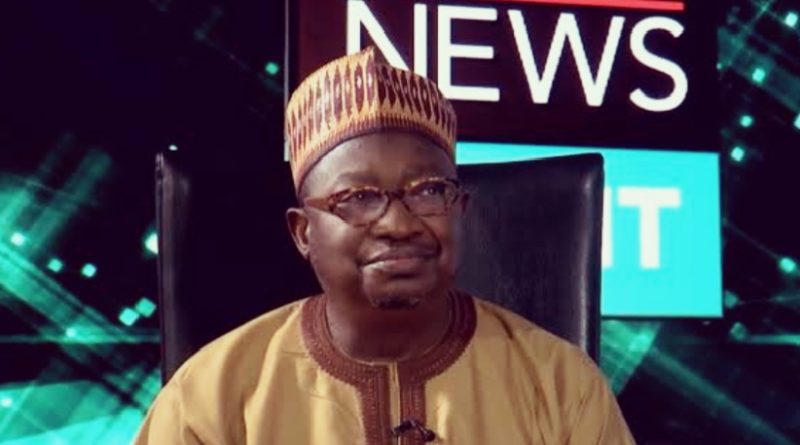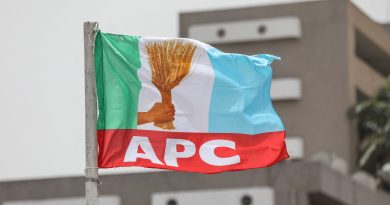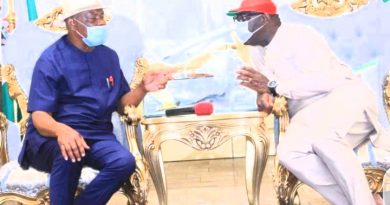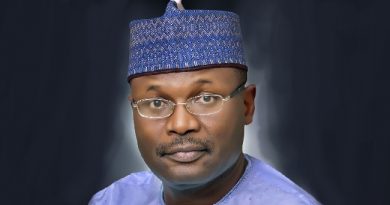Kakistocracy and our predicament
Nick Dazang
THIS piece is inspired by a quaint TIK TOK video sent to me by a witty former colleague at the defunct ABUJA NEWSDAY. The TIK TOK video unveils a new word called Kakistocracy. It challenges the viewer to Google it. At first blush my mind went to military rule. But upon Googling it, this writer discovered that Kakistocracy refers to “government by the least suitable or competent citizens of a state”. It also refers to “a state or society governed by its least suitable or competent citizens”.
Kakistocracy derives from two Greek words, namely: Kakisto(worst) and Krastos(rule). Though Kakistocracy draws its etymology or roots from Greek, and though it appears novel and strange, it was coined as early as the 17th century. Thus it was merely exhumed to reflect our prevailing circumstances. What strikes me, and I am certain what informed my colleague’s forwarding of this TIK TOK video, must be its aptness or appropriateness to our national predicament and the serial, inept leaderships that have brought us to our sordid pass.
Consider their catalogue and sundry foibles: To herald the Second Republic, the then military administration led by General Olusegun Obasanjo allowed the registration of five political parties to contest the 1979 elections. They were: the National Party of Nigeria, NPN; Nigeria Peoples Party, NPP; Great Nigeria Peoples Party, GNPP; Peoples Redemption Party, PRP; and the Unity Party of Nigeria, UPN. The standard bearers of these five parties were: Alhaji Shehu Shagari, Dr. Nnamdi Azikiwe, Alhaji Waziri Ibrahim, Malam Aminu Kano and Chief Obafemi Awolowo respectively. These were not only distinguished politicians and household names, some of them had their pedigrees in the struggle for Nigeria’s independence and the First Republic. Dr. Azikiwe and Chief Awolowo were notably distinguished by their erudition and technocratic abilities. Zik was urbane and cosmopolitan. Awolowo was famously deliberate and purposive, two attributes the renowned novelist, China Achebe, associated with the politician. Aminu Kano was distinguished by his integrity and spartan disposition. Waziri Ibrahim was a business mogul who had cut his teeth at the United Africa Company, UAC.
How Alhaji Shehu Shagari emerged as the NPN’s standard bearer and later governed from 1979 to 1983 is revealing. He had earlier shown interest only in being a Senator. And upon learning that some bigwigs of his party were rooting for him to contest the presidency, he took off to Germany to avoid their pressure. Highly competent contestants such as Adamu Ciroma, Olusola Saraki and Maitama Sule were short shrifted in Shagari’s favour. His unique selling point was that he was meek. The upshot of his preference by his party’s caucus was that hawks such as Dr. Umaru Dikko took over the reigns of power. The country then had a scenario in which lions were being led by a lamb. President Shagari’s helplessness was such that Umaru Dikko, Dr. Ibrahim Tahir and their ilk spoke condescendingly to their compatriots. The economy went downhill. It took Chief Awolowo, who had returned to the country from a “spiritual rejuvenation” abroad, to awaken the government from its slumber and to the dire straits in which the economy was.
Chief Awolowo, whose bonafides as an astute manager of resources preceded him, never became president until he died on May 9, 1987. One of Nigeria’s best journalists, Mr. Dan Agbese, referred to him as “the best President Nigeria never had”. Chief Chukwuemeka Odumegwu Ojukwu, the former Biafran leader, was to repeat the same refrain at Chief Awolowo’s death.
In 1983, following the excesses of the NPN-led Federal Government, and the brazenly rigged elections of that year, the military took over. Major General Muhammadu Buhari, as he then was, was invested with the positions of Head of State and Commander-in-Chief by his fellow putschists. Not only was his government draconian and vengeful, he outsourced its administration to the dour and unsmiling deputy, Brigadier-General Tunde Idiagbon. Enter General Ibrahim Babangida. He, with his colleagues, overthrew the granite-hearted Buhari in a palace coup on August 27, 1985. Whereas General Babangida demonstrated a modicum of preparedness to ascend to high office and he surrounded himself with very capable persons, his eight-year tenure was undermined by an uncommon wiliness and the grotesque annulment of the June 12, 1993 presidential election. The election was adjudged as one of the best in the country’s annals.
General Sani Abacha, who edged out the illicit Interim National Government, ING, led by Chief Ernest Shonekan, was a good manager of the economy. The Naira enjoyed a measure of stability under his watch. His ruthlessness was his undoing. He governed in an atmosphere of fear and Nigeria became a pariah on the world stage.
Former President Muhammadu Buhari, who touted and marketed himself as a person of high integrity and someone who would address the country’s serious security concerns, proved a resounding failure. At the end of the day, the economy plunged to its nadir. Insecurity reached its apogee. Army personnel guarding the presidential villa were attacked in Abuja. The presidential convoy, was for the first time, ambushed on its way to Daura. The Correction Centre at Kuje, less than 60 kilometers to the Three Arms Zone, housing the presidential villa, the Supreme Court and the National Assembly, was attacked. Incarcerated terrorists were set free.
Before his advent to power, his handlers marketed President Bola Ahmed Tinubu as experienced and thorough. They latched onto his eight-year tenure as Governor of Lagos State, Nigeria’s mega city, to argue their case. Alas, since his inauguration, his government has been framed by haphazardness and impulsiveness. In fact, his first act of withdrawal of fuel subsidy, without much of a forethought or a plan regarding its deleterious consequences, knocks the bottom out of their claim. Worse is the president’s propensity to abdicate responsibility or fail to show leadership. In a week when violence raged on the Plateau, traditional rulers were killed by unknown gunmen in Ekiti State, scores of school children were abducted in Ekiti and Benue States and 30 others were killed in Agatu Local Government of Benue State, the president is said to be paying a private visit to France! It may not be outlandish, in these unfortunate circumstances, to draw parallels with Nero. He once fiddled while Rome burnt.
If Kakistocracy does not speak eloquently to our predicament, one wonders what does.
Dazang, former Director of Voter Education at INEC, wrote from Abuja
Photo Credit: Arise TV




